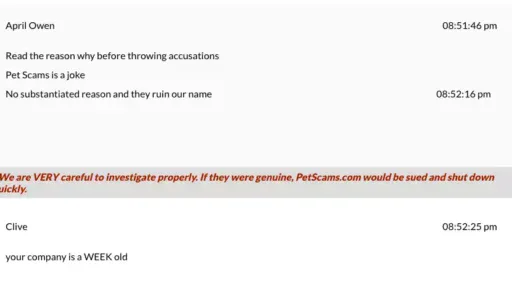In today’s digital world, online fraud and scams are growing more sophisticated, targeting unsuspecting users through everything from Google Ads scams to home scams and fraud sales. If you’ve
ever lost money to a scammer, you’re not alone—and this post will help you understand the threats, how to protect yourself, and what to do if you’ve been scammed.
⚠️ The Rise of Google Ads Scams
You trust Google, so you might think clicking an ad at the top of your search results is safe. Unfortunately, Google Ads scams are becoming more common. Fraudsters are using fake ads to:
- Impersonate pet breeders or shelters
- Offer fake tech support
- Promote fraudulent sales (especially pets, electronics, and home goods)
Victims often end up losing money to scammers who vanish once the payment is made.
💻 Online Fraudsters: How They Trick You
Online fraudsters use psychological manipulation and urgency to get your money or information. Their favorite tools include:
- Phishing scams via email or social media
- Fake websites mimicking real companies
- Pressure to pay quickly through cash apps or gift cards
These scams often look professional and legitimate—until it’s too late.
🏠 Watch Out for Home Scams and Fraud Sales
Home scams are especially dangerous, often involving:
- Fake rental listings
- Stolen photos of real properties
- Requests for deposits before you can “view” the home
Similarly, fraud sales involve fake items listed at a “too good to be true” price—usually a red flag.
There are hundreds of these fraud sales websites listed on Scam.Directory
🧾 Online Scam Reporting: How to Report a Scammer
If you’ve been a victim, it’s crucial to report the scam. Here are steps you can take for online scam reporting:
- Document everything – emails, screenshots, payment receipts.
- Report the scammer online to your country’s fraud reporting agency:
- Report the ad (if applicable) to Google or the platform it appeared on.
- File a police report if necessary.
You can also report scammers online directly on PetScams.com—we track fraud cases and help warn others.
❓ Scam? What To Do Next
If you think you’ve fallen for an online scam, here’s what to do immediately:
- Stop all contact with the scammer
- Contact your bank or payment provider to try to reverse the charge
- Change your passwords if you shared login information
- Report the scam online to help others avoid the same fate
🔁 Can You Scam a Scammer?
Many people dream of scamming a scammer, but we strongly advise against it. Not only is it risky, but it could also be illegal. Instead, focus on collecting evidence and submitting a scammer report online to the appropriate authorities.
📰 Scam News: Stay Informed
We regularly publish scam news and updates about online fraud and scams on PetScams.com. Staying informed is your first line of defense. Our coverage includes:
- Breaking stories about major scam busts
- Scammer news alerts
- Exposés on trending fraud techniques
Bookmark our site and follow us for the latest on scams online.
🐾 About PetScams.com
PetScams.com is dedicated to exposing scammers and protecting buyers from online scam fraud—especially in the pet industry. But our mission has expanded to help fight fraud in all its forms. Whether you’ve fallen for a cash scam or want to avoid online fraudsters, we’re here to help.
✅ Stay Safe From Online Scams
- Be skeptical of deals that seem too good to be true
- Don’t send money before verifying a seller or breeder
- Use secure, traceable payment methods
- Check PetScams.com for scam reports before making online purchases
Scams online are evolving—so should your defenses. If you’ve been targeted, remember: you’re not alone, and there are ways to fight back.
👉 Report a scam now at PetScams.com and help others stay safe.







